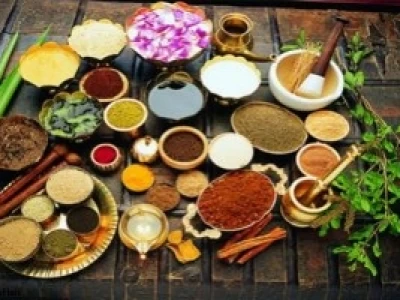Ayurvedic Course in Lakshadweep
Ayurveda is a combination of two Sanskrit words “Ayur” meaning life and “Veda” meaning knowledge. Ayurveda originated around 600BC in India. In Lakshadweep Ayurvedic medicine courses are a life science which basically deals with the toxicology i.e. the study of the opposing effects of physical agents or chemicals on living organisms. Ayurveda is a combination of senses, mind, body and soul. Ayurvedic courses in Lakshadweep explains that all matter is thought to be composed of five basic elements (pancha which possess the properties of earth, water, fire, wind and space. These elements do*utas) isolated forms, but are always in a combination, in which one or more elements dominate exist. Ayurvedic Medicine is a comprehensive system of medicine combining natural therapies highly personalized approach to the treatment of disease in Lakshadweep.
There are several aspects to Ayurveda that are quite unique. It offers reference points for managing treatment decisions specific to each case. Ayurvedic theory is profoundly useful in analyzing individual patient constitution and understanding variations in disease manifestation.
The branches of Ayurveda are Kayachikitsa (Internal Medicine), Bala chikitsa (Paediatrics), Graha chikitsa - Bhoota Vidya (Psychiatry), Urdhvanga chikitsa (Treatment of eyes, ears, nose, throat head), Shalya chikitsa (Surgery), Darnstra chikitsa - Agada tantra (Toxicology), Jara chikitsa-Rasayana (Gerentorology) and Vrishya chikitsa - vajikarana (Aphrodisiacs)
Special physicians who practise Ayurveda are called Vaidyas in Lakshadweep. They are known for promoting positive health, natural beauty and long life.
One of the distinguished features of Ayurveda is that the ayurvedic medicines have no side effects. An Ayuvedic practitioner treats the patients with wide range of techniques including diet, herbal remedies, exercise, spiritual practices, and various healing modalities to bring a person into balance, etc. An Ayurvedic practioner, diagnose the patient by feeling pulse rate, simple interrogation, checking blood pressure, etc.
Various courses are available in Ayurvedic colleges and Universities. At Undergraduate level 5 year BAMS is offered. Eligibility: (i) 12th Standard with Science (Physics, Chemistry and Biology) and Sanskrit. Wherever provision and facilities for teaching Sanskrit as optional subject are not available at 12th Standard (Biology Science Group), the students with 12th Standard (Biology Science Group) be admitted and Sanskrit be taught in main course.
Or Uttar Madhyama of Sampumanand Sanskrit Vishwavidyalaya with Science and English



Write A review